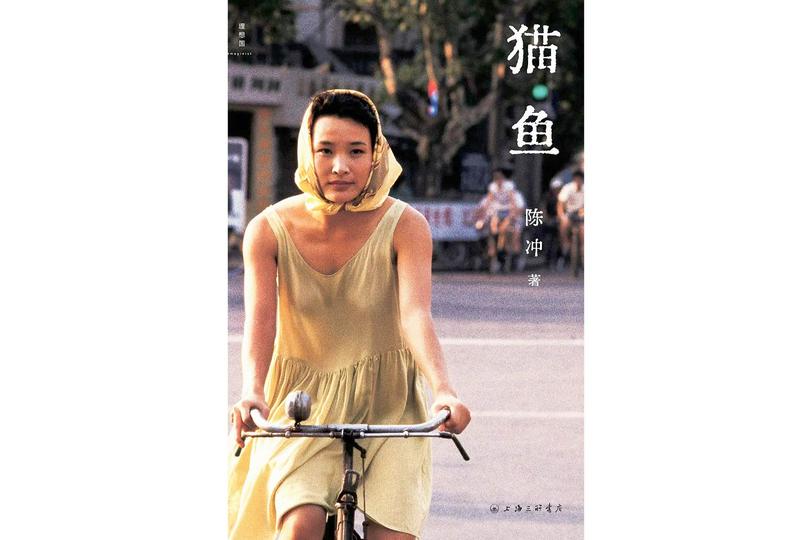In July 2024, the renowned American Chinese film director and star Joan Chen released her latest work, Catfish, a memory that spans over a century. Notably, she puts faith in an indispensable position, leaving a memorable mark on her growth.
In the book, Chen meticulously documents the life journeys of several generations of her family members and narrates her own mental and emotional odyssey from her hometown Shanghai to San Francisco. She reflects on the transformations of the roles that she played from the teenager in “Little Flower” to the empress in the TV drama “The Last Emperor” and Doctor Lin in “The Sun Also Rises.” Readers are led into the depths of her life’s journey.
"One of the important correspondents in my life is M."
One of the 25 articles of the book is “My Friend from the Past”. It is about a person named “M.” He was Chen’s classmate during her training at the Shanghai Film Studio Actor Troupe. They felt good about each other at that time.
Writing about “M,” she recounts an experience during her exam preparations: “That summer was sweltering. The tree leaves and grass in the courtyard of my training institute were still, and many mosquitoes flew out of a small pond. At a desk, I reviewed my program fanning myself with burnt mosquito coils next to me. It was always M who would appear with a thermos filled with icy cold plum soup for me. That was such a sweet comfort. As I was enjoying the drink and short break, I often talked to him about my lack of confidence. He said, since you’re so diligent, you will definitely find favor in God. Strangely enough, we often mentioned ‘God’ and ‘destiny.’ I didn’t know at that time M had gradually become a devout believer.”
Eventually, Chen was admitted to Shanghai International Studies University. As they met each other less frequently, they communicated extensively through letters, and M became one of the important correspondents in her life. Years later, M prepared to return these letters to Chen, leading to a section in the book about a recollected memory.
She writes about moments when she longed for M's touch, “There were at least three times when we longed for each other’s body, a sensation that was almost tangible. His restraint might have been due to the fact that we hadn’t confirmed a clear romantic relationship. According to his moral values, without a commitment to love, physical touch was considered unchaste behavior. I also believed that love was sacred and happened only once in a lifetime, and was gone once it was used up.”
After bidding farewell to M, Chen had her first boyfriend, W. However, he did not talk to her about feelings, let alone love. “He just grabbed me and kissed me deeply, and I lost myself. But he was almost a stranger to me at that time.” Later, her mother met W and commented that he had a despicable soul. “After I broke up with W, I wrote a letter to M, but I didn’t mention that experience which left me with an emotional blow and shame. How could I let him know that I had degraded and ravaged myself, and no longer believed in love?”
Chen’s description shows a stark contrast between M and W, especially in their views on love and behavior. Despite the strong emotional attraction between M and her, M still insisted on not easily crossing the boundaries of physical contact, reflecting his cautious attitude towards love and his respect for her. Although they did not end up together, it shows the beauty of maintaining purity in love rather than the lasting harm caused by superficial impulsiveness.
M’s restraint reflects the Christian understanding of the sacredness and purity of love. In the Christian faith, physical touch and intimate relationships are sacred and should be based on love and commitment, not mere desire. When love is only a shell for exchanging lust, it becomes a deception and tragedy.
The Praying Mother
The most touching part of the book is Joan Chen’s mother's devout prayer, which had a profound impact on Chen, especially when she was alone in the United States.
“Every time my mother called, she reminded me to pray every day. Since becoming a mother, I have truly understood the ingrained love and concern of my parents for me. As the fetus grew in me day by day, my heart also nurtured great gratitude – in this world full of unexpected calamities, I can peacefully hold onto a beautiful hope at home.”
Both Chen and her brother inherited insomnia from their mother. During breakfasts, they seriously discussed the effects of sleeping pills, dreams, and the latest scientific research. Even after taking pills, she could not fall asleep. Her mother would always comfort her by saying, “Then just pray, remember to pray.”
When her mother was around 80 years old, she one day said to her, “I know my mind will collapse before my heart does. Your grandmother was the same. Science has no solution to this problem, but only prayer does.” Even though her mother’s memory was gradually fading, the faith shaped in her early years remained clear. Prayer became an essential part of her life, and in a world of blurred memories, her faith became the most precious memory of her life.
Chen also delves into her inner struggles and confusion about faith when facing her mother’s serious illness. “I’m not religious and am skeptical towards both myself and religion. However, during the ten months of her serious illness, I prayed every night in the dark, asking God to bless her. Dduring those moments, I wasn’t ‘devout’; sometimes, I would shout in my heart: What do you want from her? Why are you torturing her like this?”
Despite people have doubts about God, in extreme pain and helplessness, one naturally seeks help from a higher power. In Christian tradition, doubt is not the opposite of faith but a part of growth. In difficulties, people often question God’s justice and love, just as Joan Chen’s inner cries. Similar emotions are also reflected in the Book of Job, where Job questions God’s justice in his suffering. Faith does not require people to abandon doubts but encourages them to seek understanding with questions.
Chen’s prayers during her mother’s serious illness did not immediately bring answers but were filled with doubts and helplessness. Her “unfaithful” state was actually a real spiritual struggle, reflecting people’s questioning of the meaning of life in pain. This experience brought people into a more authentic state of faith, acknowledging their vulnerability. God’s response often comes quietly in people’s most vulnerable moments, allowing them to find a connection with God in their vulnerability.
What moves me about this memoir is that the author profoundly depicts the power of faith with awe. Laying down the book, I began to pray for the author to gain a deeper understanding of faith and was grateful that her life experiences could be acknowledged by more readers.
(Originally published by the Gospel Times, the article has been edited under permission n.)
- Translated by Charlie Li












